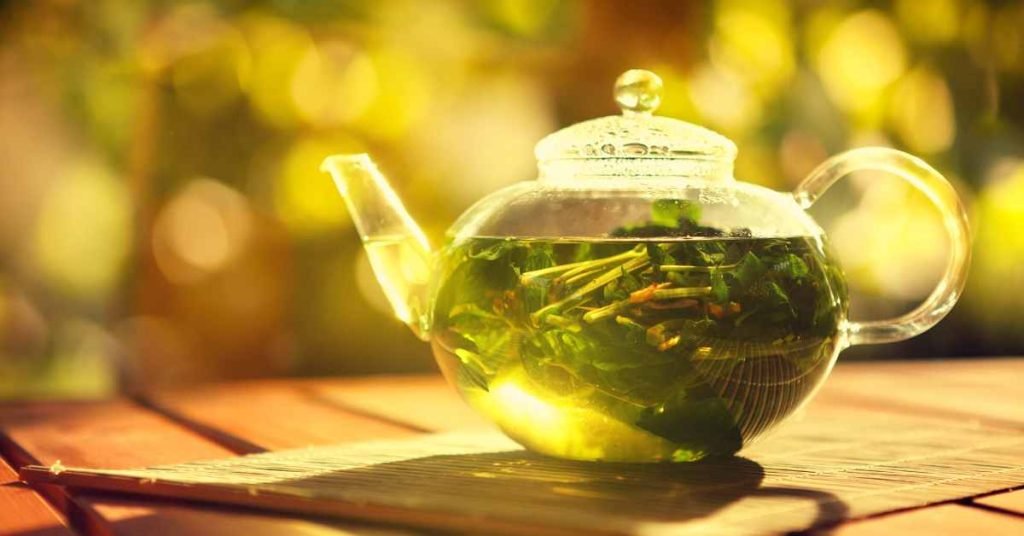Tea has long been revered for its diverse flavors, cultural significance, and potential health benefits. Among its many touted advantages, one intriguing aspect is its impact on migraines.
Migraines, characterized by intense headaches often accompanied by nausea and sensitivity to light, can be debilitating for those who suffer from them.
In recent years, researchers and tea enthusiasts alike have delved into the potential of certain teas to provide relief from migraine symptoms.
This article aims to explore the connection between tea and migraines, examining the types of teas that may be effective, their potential benefits, and the underlying mechanisms at play.
Understanding Migraines

Before delving into the relationship between tea and migraines, it is crucial to understand the nature of migraines themselves.
Migraines are a complex neurological condition that involves a variety of factors, including genetics, environmental triggers, and changes in brain activity.
While the exact cause of migraines remains elusive, researchers have identified certain triggers that can contribute to the onset of an attack. These triggers include stress, lack of sleep, hormonal fluctuations, and dietary factors.
Tea Types and Their Potential Impact
Green Tea:
Green tea, derived from Camellia sinensis leaves, is celebrated for its rich antioxidant content, particularly catechins and flavonoids.
These compounds have anti-inflammatory and neuroprotective properties that may play a role in alleviating migraine symptoms.
Moreover, the caffeine content in green tea, though lower than that in coffee, can provide a mild stimulant effect that may help with headache relief.
Peppermint Tea:

Peppermint tea, known for its refreshing taste and soothing aroma, has long been used to address various health issues. In the context of migraines, peppermint tea stands out for its ability to relax muscles and alleviate tension. The menthol in peppermint has a cooling effect, potentially easing the intensity of migraine-related pain.
Ginger Tea:
Ginger, a root known for its anti-inflammatory properties, is a common ingredient in traditional medicine. Ginger tea may help mitigate migraines by reducing inflammation and inhibiting the synthesis of certain inflammatory compounds. Additionally, ginger’s potential to alleviate nausea can be beneficial for migraine sufferers who experience gastrointestinal symptoms during an attack.
Chamomile Tea:
Chamomile tea, derived from the dried flowers of Matricaria chamomilla, is renowned for its calming and anti-inflammatory effects. The compounds in chamomile may help relax muscles and soothe tension, potentially contributing to migraine relief. Moreover, chamomile’s ability to promote relaxation may aid in reducing stress-related triggers for migraines.
Feverfew Tea:
Feverfew, a medicinal herb with a history of use in migraine treatment, is gaining attention in the form of tea. Studies suggest that feverfew may help reduce the frequency and severity of migraines, possibly due to its anti-inflammatory and vasodilatory effects. While more research is needed, incorporating feverfew tea into a migraine management plan could be a promising avenue.
Benefits of Tea in Migraine Management

Anti-Inflammatory Properties:
Many teas, particularly green tea, ginger tea, and chamomile tea, contain compounds with anti-inflammatory properties. Inflammation is believed to play a role in migraine pathophysiology, and reducing inflammation may contribute to the relief of migraine symptoms.
Antioxidant Content:
The high antioxidant content in certain teas, such as green tea, can help combat oxidative stress in the body. Oxidative stress has been linked to various health issues, including neurological disorders. By neutralizing free radicals, antioxidants may offer protective effects against migraine triggers.
Caffeine Content:
Caffeine, found in varying amounts in different teas, has both vasoconstrictive and analgesic effects. In moderation, caffeine can help alleviate headache symptoms and enhance the effectiveness of pain-relief medications. However, excessive caffeine intake can lead to rebound headaches, emphasizing the importance of moderation.
Relaxation and Stress Reduction:
Certain teas, like chamomile and peppermint, are known for their calming properties. By promoting relaxation and reducing stress, these teas may indirectly contribute to migraine management, as stress is a common trigger for migraine attacks.
Nausea Relief:
Ginger tea, in particular, has been studied for its antiemetic properties. For individuals who experience nausea during migraines, ginger tea may offer a natural and soothing remedy to alleviate gastrointestinal symptoms.
Mechanisms at Play

The mechanisms underlying the potential benefits of tea in migraine management are multifaceted. Here are some key factors to consider:
Vasodilation and Vasoconstriction:
Migraines are often associated with changes in blood vessel diameter. Teas like green tea and feverfew may influence vasodilation and vasoconstriction, potentially modulating blood flow in a way that reduces migraine symptoms.
Neurotransmitter Modulation:
Compounds found in tea, such as catechins in green tea, may interact with neurotransmitters in the brain. This modulation could impact pain perception and the frequency of migraine attacks.
Anti-Inflammatory Effects:
Chronic inflammation is implicated in various health conditions, including migraines. Teas with anti-inflammatory properties may help mitigate inflammation, reducing the overall burden on the body and potentially lessening migraine frequency and severity.
Stress Reduction:
The calming effects of certain teas can contribute to stress reduction. Chronic stress is a well-established trigger for migraines, and by promoting relaxation, tea may indirectly help manage this aspect of migraine pathology.
Final Word

While the potential benefits of tea in migraine management are promising, it’s important to note that individual responses can vary.
Moreover, tea should not be viewed as a standalone treatment for migraines but rather as part of a holistic approach that includes lifestyle modifications, stress management, and, if necessary, medical interventions.
As with any health-related matter, individuals experiencing migraines should consult with healthcare professionals for personalized advice and treatment plans.
The exploration of tea’s potential in migraine management adds a flavorful dimension to the broader conversation on natural remedies for health and well-being.
MEDICAL DISCLAIMER
Itsnevernotteatime.com cannot and does not contain medical/health advice. The medical/health information is provided for general and educational purposes only and is not a substitute for professional advice.




